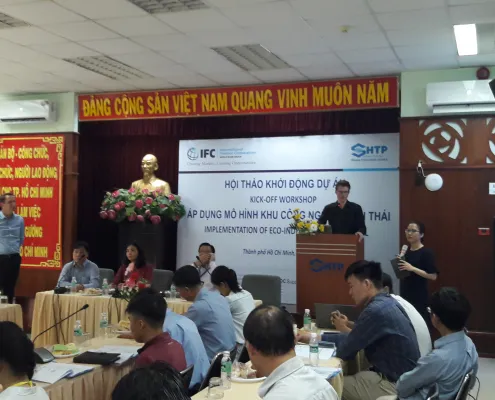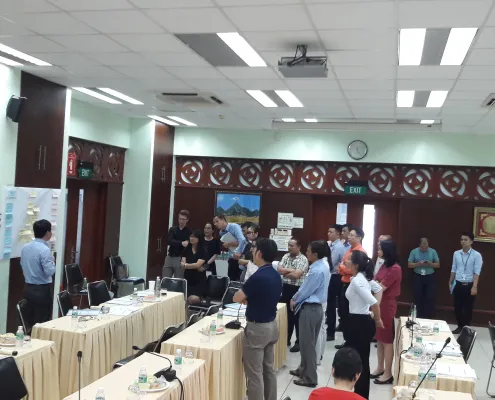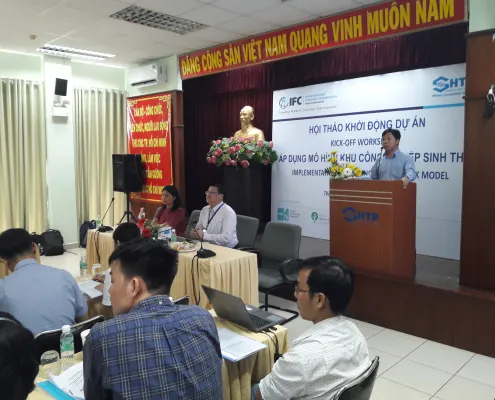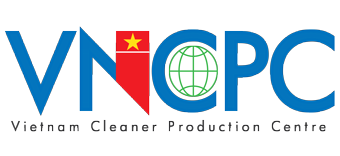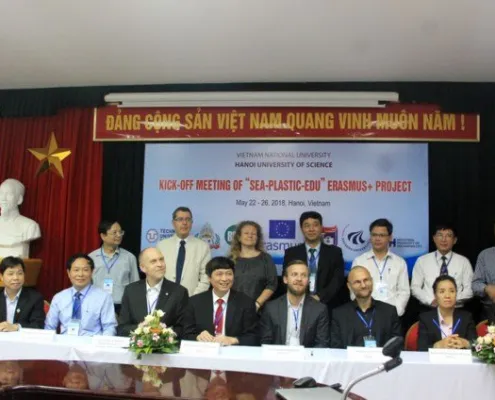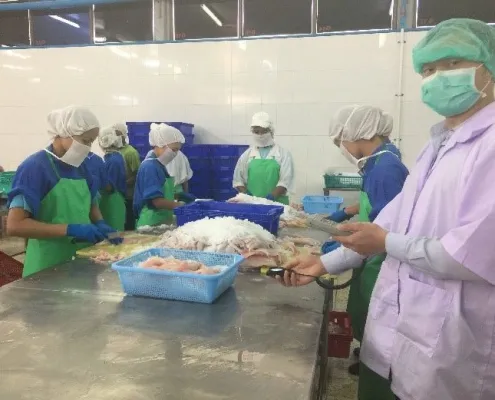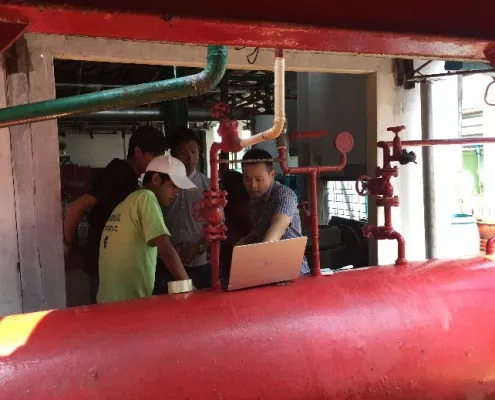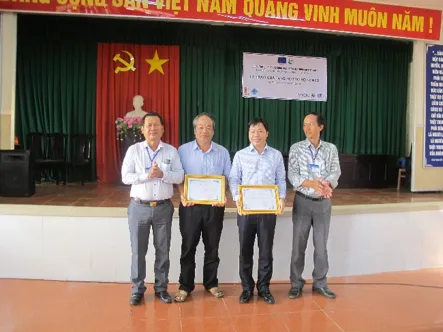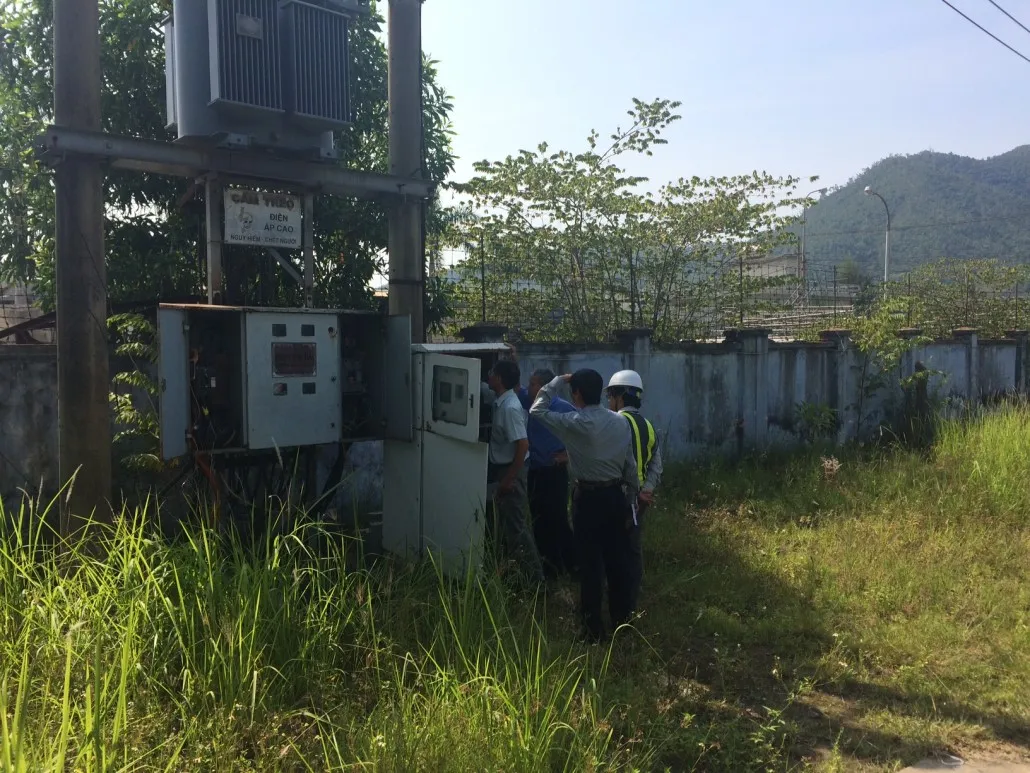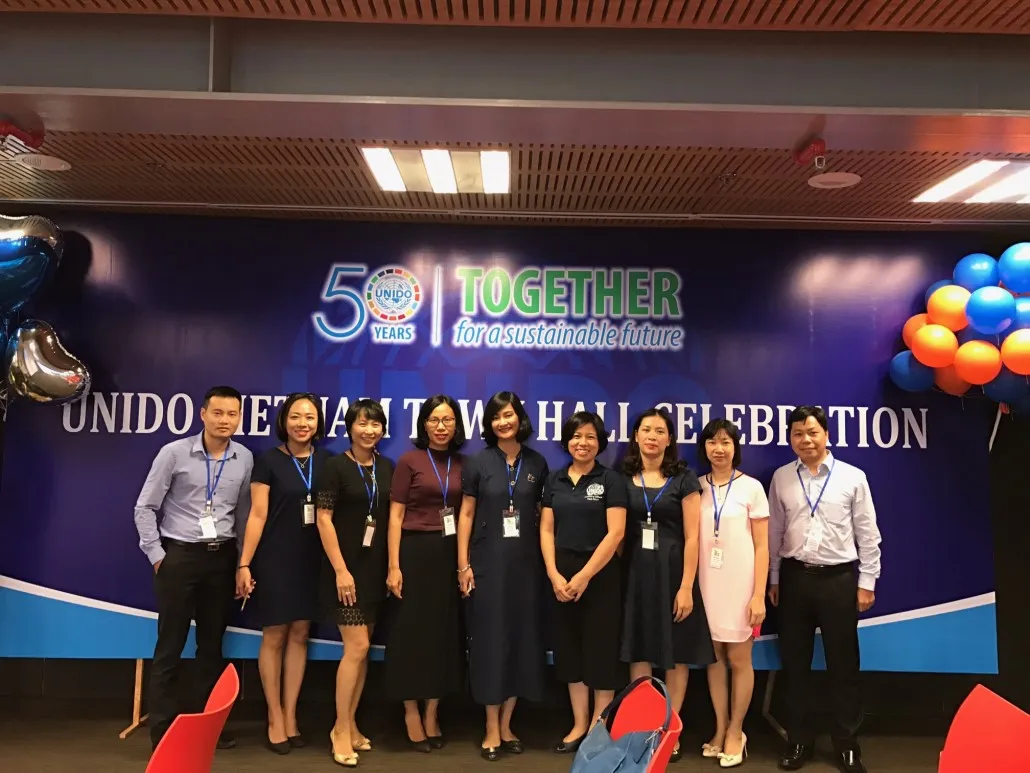Did you know that in Viet Nam, the net flow of foreign direct investment increased from USD1billion in 2003 to USD10 billion in 2008, and that by 2015 reached USD23 billion? Or that the total value of exports rose from USD2 billion in 1990 to USD72 billion in 2010, to reach USD162 billion in 2015? These impressive figures highlight the country’s robust economic success, providing a boost to the economy and employment.
These accomplishments are largely due to the reforms undertaken by Viet Nam since Doi Moi in 1986 which liberalized the economy, attracted foreign investment, fostered exports and reduced poverty. To prepare for reform, Viet Nam received extensive technical assistance from the international community, including from the United Nations Industrial Development Organization (UNIDO), well before 1986 and, more precisely, since 1978.
For more than 35 years, UNIDO has been sharing international best practices to help Viet Nam develop inclusive and sustainable industry. With more than USD100 million in expenditure, UNIDO’s technical cooperation activities have been carried out across a broad range of fields, including support to the private sector and technical and industrial research organizations, facilitation of technology transfer, trade capacity-building, human resource development, environmental protection, energy efficiency, investment promotion and responsible business practices.
The aim of UNIDO’s programme is to assist the Government in achieving sustainable and equitable social and economic development. Multi-dimensional partnerships have been developed with Viet Nam’s ministries in charge of industry, trade, planning, investment, agriculture, science and technology, and the environment, and with the Chambers of Commerce and Industry, business associations, universities and UNIDO’s centres.
UNIDO has focused its assistance on the preparation and implementation of industrial and trade development strategies and policies, for example industrial sector surveys, industrial sub-sector policies, foreign and domestic investment policies and legislation. UNIDO has also improved the capacity of the General Statistical Office. Another aim has been to foster the development of local suppliers of professional services for industrial development, and strengthen the capacity of every kind of business association.
The mechanisms for technology transfer differ considerably between centrally-planned economies and market economies. In Viet Nam, UNIDO has acted as a catalyst, facilitator and initiator of the technology transfer process. Furthermore, UNIDO has facilitated contact between Vietnamese and foreign enterprises through technical exhibitions, seminars, investment promotion, and information networks.
On environmental issues, one priority area for UNIDO has been cleaner production and energy efficiency. UNIDO has supported country endeavours through policy advice, information on the availability and choice of clean technology, and promotional programmes, as well as environment and energy audits.
Human capital investments are prominent in virtually all the success stories of East Asia. Educational expenditure is fundamental but the private sector’s participation is also important. UNIDO-supported services can be classified in three categories: (i) assistance in preparing strategies, policies and plans for industrial human resource development; (ii) strengthening of institutional capacity for industrial human resource development (training of trainers); and (iii) training geared directly to groups of enterprises or industrial sub-sectors.
UNIDO has achieved outstanding project results in Viet Nam, and I would like to highlight just a few of them:
- The UNIDO Viet Nam Cleaner Production Centre, which started its activities at the end of 1998, has served as a major driver of Viet Nam’s sustainable industrial production pathway.
- UNIDO has supported Viet Nam’s pre-ratification assessment of the Minamata Convention to control mercury in products and avoid unnecessary health hazards to people and the environment.
- To help the country address the challenge of reducing energy intensity, UNIDO has developed the first-ever comprehensive plan to institute measures for improving industrial energy-efficiency and conservation.
- Viet Nam became the WTO’s 150th member in 2007, and since then UNIDO has helped Viet Nam to conform to international standards and win access to markets. Product quality and standard issues are one of the biggest challenges for Viet Nam’s international economic i
- For over 15 years, UNIDO has been privileged to partner with the Government in the field of business registration reform. UNIDO’s assistance has addressed obstacles faced by entrepreneurs in completing start-up registration procedures. In particular, it helped with the implementation of the Enterprise Laws of 2005 and 2014 and the simplification of registration procedures. In 2010, the Agency for Business Registration was established and, in the same year, the National Business Registration System was launched. The data of 574,535 existing enterprises has been transferred and, as of December 2015, 477,235 new enterprises had been registered. The statutory time-limit for business registration has been reduced from 15 to just three days.
The recently agreed 2030 Agenda for Sustainable Development presents us with global and ambitious goals which address all three dimensions of sustainable development − economic, environmental and social. These goals and targets are also complemented by the Paris Agreement, adopted by 195 countries last December. This agreement – the first ever universal, legally binding global climate deal − commits us to limiting global temperature rise to well below two degrees Celsius above pre-industrial levels.
Sustainable Development Goal 9 of the 2030 Agenda recognizes the relevance of inclusive and sustainable industrialization for poverty eradication, and echoes UNIDO’s mandate of inclusive and sustainable industrial development. With regard to Viet Nam, UNIDO sees two major issues for the achievement of Sustainable Development Goal 9. Firstly, how can the recent trade liberalization and economic and productive restructuring benefit Vietnamese companies? Secondly, how can industrial policy and strategies be re-formulated to take account of national priorities, as well as of global threats and opportunities, including the building of linkages among industrial sectors to increase the manufacturing value added of existing products and to enter new and more dynamic sectors.
The current global setting is far different from that of the 1990s. Viet Nam is now part of a bigger game, from which it has passed the point of no return with the signing of key trade deals in 2015. The Trans-Pacific Partnership (TPP) trade agreement holds considerable potential. Viet Nam could be the greatest beneficiary of the 13-nation deal, with a boost of Vietnam’s gross domestic product by as much as 8 per cent over the next two decades. The signing of another free trade agreement with the European Union will eliminate 99 per cent of tariffs on traded goods over a 10-year period.
Viet Nam is also likely to be a major partner of the new ASEAN Economic Community (AEC).The creation of the AEC, together with Viet Nam’s rise as an industrial and technological production centre, are expected to support higher levels of intra-bloc trade and investment.
In this new context, UNIDO will continue to work with Viet Nam to promote restructuring and modernization to enhance quality and competitiveness. We will focus on key industries and those industries having comparative advantages and strategic significance for fast, effective and sustainable development and the greater independence and self-reliance of the economy.
UNIDO is keen to support Viet Nam’s inclusive and sustainable industrial development strategy, and believes that, by 2035, Viet Nam’s economy will be inclusive, with a focus on women and youth, and with specialized industries meeting international standards in terms of technology and product quality, participating in the global value chain, using energy efficiently, and competing fairly in integrated global markets.
LI Yong
UNIDO Director General
Source: UNIDO Vietnam
